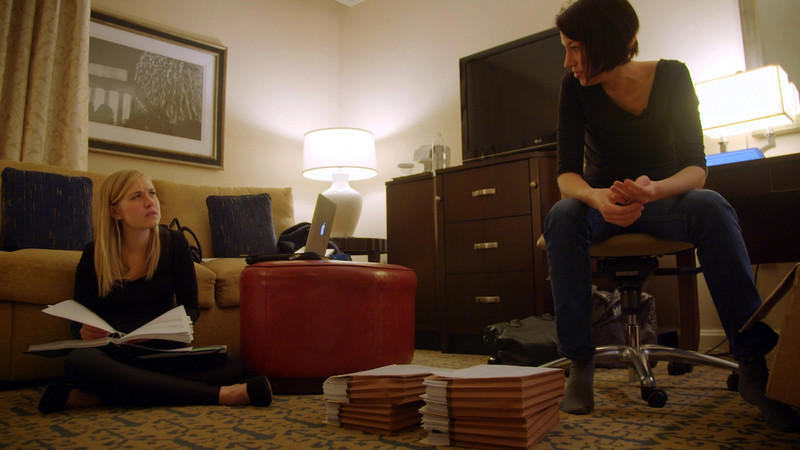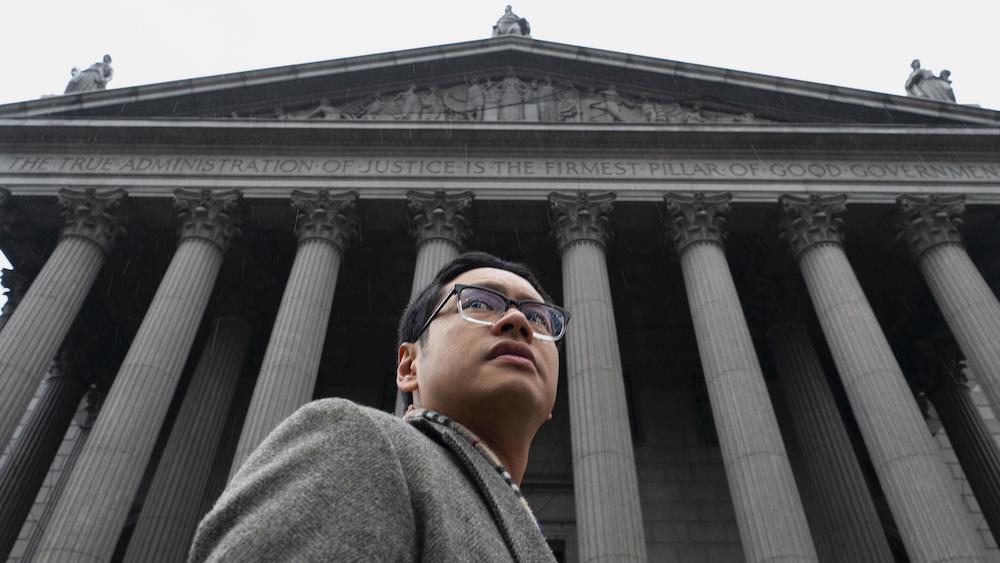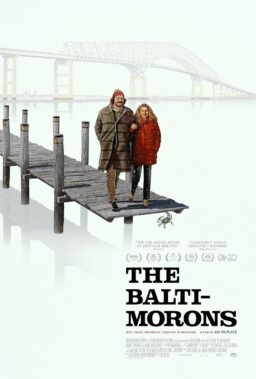“The Fight” follows lawyers from the American Civil Liberties Union as they challenge four Trump administration initiatives that raise issues of inequality: separating families seeking legal immigration, the denial of abortion rights for an undocumented minor in custody, the prohibition of trans people in the military, and the insertion of a question about citizenship in the 2020 census. In an interview, co-directors Josh Kriegman, Eli B. Despres (who also co-edited), and Elyse Steinberg talked about making the complicated legal issues accessible, leavening the drama with humor, and the scene they hated to leave out.
There are a lot of very complicated and technical legal issues in these cases. What did you do to make the cases more accessible to lay audiences?
ELI DESPRES: That’s always the trick with movies. I did a movie about hockey [“Red Army“]. I don’t know anything about hockey, which I found actually harder to parse than the legal mumbo jumbo in this one. But we know it’s challenging. A lot of the legal language is distancing, and there are moments when our subjects would veer into very esoteric deep dives about their cases. We would be scrambling into Wikipedia, and LexisNexis just to figure out what they were talking about. But with all these cases, there’s a human story that is really accessible. Children being taken away from their parents or trans people not being allowed to serve is not hard to understand.
I think that we love, and I think audiences love, becoming a miniature expert on a topic over the course of a film. And it’s a process of just titrating. You make it a little bit too complicated, and difficult to understand. And then you tone it down. Our audiences are smart and have the capacity for doing a deep dive, but we have 90 minutes and four cases. It is fun to hear some strategy, but we don’t all need to learn Latin legal terms.

JOSH KRIEGMAN: We also have the great fortune of these particular individuals, these lawyers Brigitte Amiri, Joshua Block, Lee Gelernt, Dale Ho and Chase Strangio, just being extraordinary people. As documentarians, one of the things that you look for is this real spark that you feel when you meet somebody who’s just so incredible. They light you up. You know that when you feel it, when you’re in the presence of people like that, in moments like that. Those are the documentary stories you want to capture and to tell.
And that was something with the lawyers, you know yes they were certainly so on top of the reality of the legal work but they’re also these extraordinary talented people, at the height of their ability, pushing themselves to the limits and it’s really electrifying to be in the room with them.
ELYSE STEINBERG: This was a hard film to make. These were complicated stories and we had to find ways to condense them, and to synthesize them, and to weave them together, it was a big editing feed. And finding ways to make lawyers funny, and entertaining when all they do is look at the brief for hours. When he was editing, Eli and the other editor, Kim Robertson had to find ways that lawyers running to the coffee machine was a big action scene. He even had to finding comedy like the lawyer who was always trying to charge his phone. I felt like we needed that comedy in this. And I think if you saw our film “Wiener,” we like to look for ways to find a human moment, to find the comedic moments in such a dark story.
I happened to see the film on this same day that the Supreme Court handed down their new decision prohibiting employment discrimination against LGBT people. What kind of context does that give the film?
ED: It puts into stark relief that this story never really ends. The struggle for civil rights and the ACLU’s mission are ongoing. The ACLU has been doing this for 100 years. Chase Strangio from our film was instrumental in that. It doesn’t stop, we’re pretty excited that we got to be with these subjects for the last three years. We find it inspiring and exciting, and I think we are proud and happy that they’re going to continue to fight for people. We find critical battlegrounds in American experience and that does not stop when the movie is over.
ES: It was just so thrilling. I spoke with Chase, he was so surprised. One of the things that it showed, which is something that we were trying to do with this movie, is just a sense of hope. You can fight for justice and sometimes you can win. And I think we’re just seeing that right now in this moment with the Supreme Court, with people in the streets protesting. If there ever was a time to see stories about everyday people fighting back and winning, it’s now.

Why was it important to include references to some of the ACLU’s most controversial clients, including the Nazis who wanted to march in a neighborhood of Holocaust survivors in Skokie, Illinois and the alt-right protesters in Charlottesville, Virginia?
JK: There are a couple things. In following the ACLU over the first few years of Trump’s presidency, that event in Charlottesville, the ACLU’s involvement was just very key moment in the course of the ACLU experience over that time, and in the experience of the lawyers that we were embedded with. So we really felt like that moment as part of their experience of the lawyers that we were following had to be a part of the film. And it also was an opportunity to showcase one of the things that’s extraordinary about the ACLU, the reality of the tenacity of the internal debate within the organization and how difficult it is to weigh different priorities and principles that they’re fighting for. And how that’s central to their mission, embracing that challenge, and embracing that debate, and struggling with that as they have been doing for 100 years.
One of my favorite moments in the film is when the two lawyers are trying with so much empathy and compassion to decide which one of them is going to argue the case in court.
ED: I moved by the friendship between Jason and Josh. It is genuine, and you feel it. The willingness of all of our subjects to expose their own humanity gives the audience a reason to show up and care about those issues. Outside of the stakes, you could do an essay film just about the characters in this movie. That is why we needed to see the interior lives of the people who are called to this work.
JK: I think the thing that excites us about this story and about you know the films that we make more generally, is we really enjoy viewing these big epic moments through the personal lens. That is what makes it cinematic and exciting, what it really looks like to fight these battles from the inside. And what makes these lawyers heroes is not just that they’re fighting to preserve our freedom but that they’re doing it while raising their children, wrestling with a broken phone charger. And you know it is these sort of human moments that we relate to and that really drive home this idea that history is manifested through these individuals.

Is there a scene you hated to cut? Will it be on the DVD extras?
ED: There is a very cantankerous but charming Trump supporter who was arrested for criticizing his local sheriff, and the ACLU defended him because it’s unconstitutional to arrest someone for criticizing their government. And he was a hoot, and a larger than life character who had a very professorial and charming smart attorney, who was his polar opposite. They were lovely foils for each other. And there wasn’t room in the in the movie for it, but it was a very funny couple of scenes that I wish we had been able to cram in.
Now I really want to see that. What do you think makes somebody want to go to work for the ACLU?
JK: They’re true believers. They’re really committed to do the work, for just the very basic sincere reasons of believing in the constitution, in freedom. To a person there is a real sense that there’s a deep, real, sincere belief in the work that they’re doing, in the fight for civil rights and protecting our liberties. And it’s refreshing to be spending so much time with them. Audiences can appreciate the opportunity to spend time with people who are not cynical, or maybe not as cynical as maybe it is easy to become these days.
ES: I mean they’re just a lot of fun. They are funny. When you set out to make a documentary, you know that you’re going to be embedded with people for a very long time. It’s like a marriage that you’re signing up for. You have to say, “Do we want to be with these people?” And we did. We felt like these are the people that we wanted to spend the next three years with. And being with these guys felt like a breath of fresh air, watching them work made me feel better. And our hope is that if you see this film, you’ll feel a little of that too.
Available everywhere on July 31.












